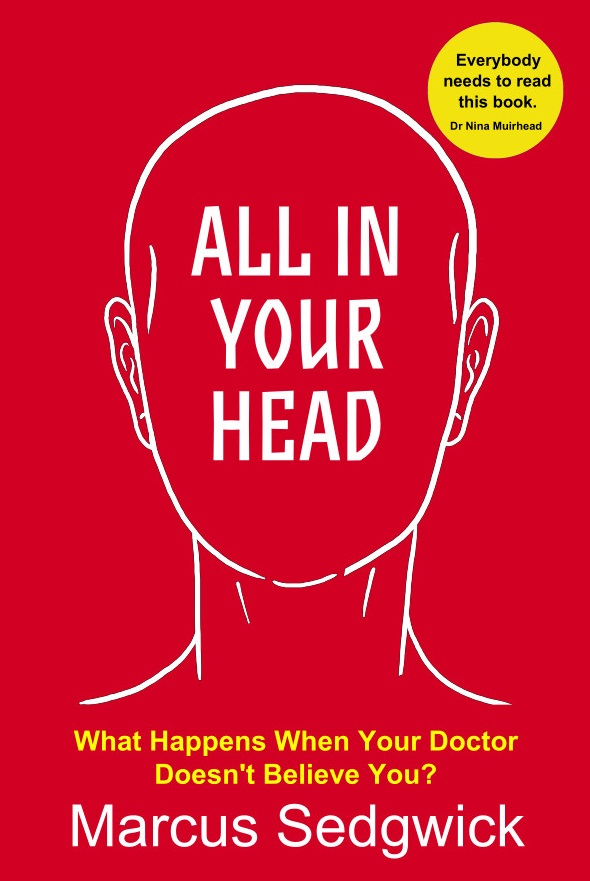An excerpt from the eye-opening book by Marcus Sedgwick.
Click on the cover to learn more
*
My usual, excellent GP, who I’ll call Dr Beattie because that was her name, was on sabbatical. In her place was a medical student from the University Hospital. She would not yet be qualified for another year or so, but I had no prejudice about that. She had the nurse take some blood and ordered some routine tests. A few days later, I returned to get the results. They’d found nothing in any of them – all negative.
This was a few weeks into being ill. At this point, I had great difficulty walking even a few steps; my legs seemed to have seized up as if they were rusting metal; they felt heavy and throbbed almost all the time. I still had the earache and diarrhoea though some of the initial acute symptoms, such as the aching bones, had eased a little.
She turned away from her computer screen and regarded me, hesitating for a moment. Then, she leaned towards me, fractionally.
‘What would you say,’ she said, ‘if I told you there was nothing wrong with you?’
I didn’t say anything at first, I think. I remember not really understanding the question. There clearly was something wrong with me. She must have seen I was confused, because she clarified.
‘What would you say if I told you this is all in your head?’
All in your head. There it was. It’s not real. You’re not necessarily lying; you may not actually be making it up, but you only think you’re ill. There is nothing wrong with you, not really. Though I didn’t know it, with those words, I became condemned to years of something for which I was utterly unprepared, something that became as hard to bear as the physical symptoms of the illness itself.
*
As the months of my illness did indeed start to become years, I came to realise how much this first impression had left on me; how much of an extra burden it was that that very first doctor didn’t believe I was ill. Not really. Not properly ill, in some fashion. And underneath it was lurking a related idea, that this illness was, in some other fashion, my own fault. As the years went on, it was something I had to find a way through, and just like the Grande Dame and her nervy ones, if I was really honest, it bothered me all the more because a part of me wondered whether it could just be true. That I wasn’t really ill. That it really was somehow imaginary, something psychosomatically generated.
I also came to find out that this experience, or some version of it, has happened, is happening, to countless numbers of patients across the UK, the US and elsewhere, even before Long Covid, as a lack of diagnosis is quickly transformed into something quite different – the supposition that there must therefore be nothing ‘really’ wrong with you, not in your body anyway. So that is what this book is about: what happens when your doctor tells you that your illness is ‘all in your head.’
It’s about where those four words would take me over the next seven years, and are still taking me. It’s about what happens when your doctor doesn’t believe that you’re actually ill; when they doubt the veracity of your lived experience. It’s about the strange places you end up when you reach desperation point; the bizarre therapies and sometimes even more bizarre therapists. It’s about the crisis of trust that is brewing between patient and their doctor; a process that was well underway before the pandemic, though unseen by most of the world. It’s about the hidden reasons why your doctor might be motivated to tell you your illness is psychogenic, which have less to do with medicine and more to do with money. Because as I dug deeper into the stories surrounding unexplained illnesses, I saw behind the veil. Maybe the better metaphor would be that I saw behind the curtain around the hospital bed, and discovered that what is occurring between doctor and patient behind it is not always as positive, hopeful and as based in good science as we might imagine. And finally, it’s about the process of trying to find answers, of finding meaning, and what happens when you can’t.



